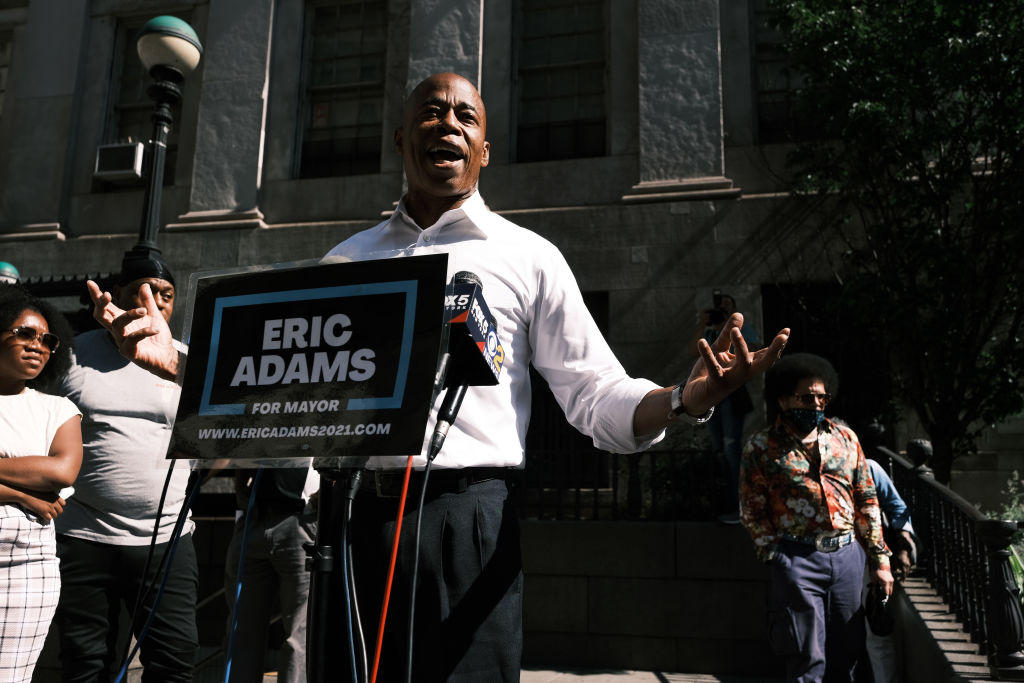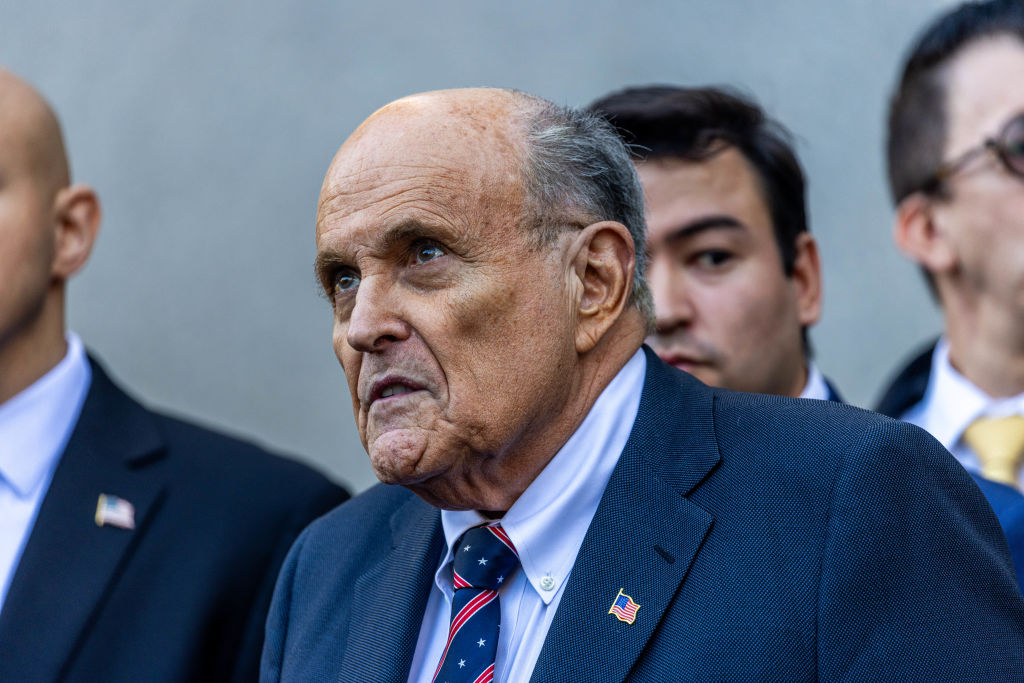Eric Adams Wins, Moves Closer To Becoming Second-Ever Black Mayor Of NYC
Eric Adams Moves Closer To Becoming Second-Ever Black Mayor Of NYC

Source: Spencer Platt / Getty
New York City moved closer to electing its second-ever Black mayor after Eric Adams was on Tuesday night declared the winner of last month’s Democratic primary.
If Adams wins the general election in November, something that is all but a given in the Democratic-heavy five boroughs, he will be New York City’s first Black mayor in more than 30 years.
He declared victory in part by saying “the results are clear” and looking to the general election.
“Now we must focus on winning in November so that we can deliver on the promise of this great city for those who are struggling, who are underserved, and who are committed to a safe, fair, affordable future for all New Yorkers.”
The Democratic primary’s results were delayed not just because it was the city’s first ranked-choice election, but also because of the board of elections’ initial miscalculation of votes.
Adams’ victory blocked the possibility of New York City electing its first Black woman mayor — or first woman mayor, period — by eliminating the candidacies of runners-up Maya Wiley, a civil rights lawyer who is African American, and Kathryn Garcia, the city’s former sanitation commissioner.
The Associated Press called the race and reported that Adams — the race’s front-runner and Brooklyn Borough President — was only leading Garcia by one percentage point. However, with ranked-choice voting, that slim margin was enough of a cushion for Adams, 60, to be declared the winner two weeks after the primary was held on June 22.
Issues with the Democratic primary
The primary election was not without its fair share of controversies, including and especially because of the ranked-choice voting.
But first, there was a major issue with tabulating the votes in the primary election, which was thrown into confusion this week after the Board of Elections announced it had mistakenly included 135,000 test ballots in the initial tally.
Adams issued a statement at the time that inadvertently lent false credence to the possibility of even falser claims of election fraud by former President Donald Trump.
“We have asked the Board of Elections to explain such a massive increase and other irregularities before we comment on the Rank Choice Voting projection,” Adams said in a statement released last week. “We remain confident that Eric Adams will be the next mayor of New York because he put together a historic five-borough working class coalition of New Yorkers to make our city a safer, fairer, more affordable place.”
Trump himself jumped into the fray releasing a statement urging the BOE to “close the books and do it all over again.”
Ranked-choice voting controversy
The ranked-choice voting — the first time the method was used in an election in New York City — was feared as having a negative impact on Black and brown voters, in particular.
Adams even told Politico in an interview ahead of the primary election that with “every layer you put in place in the [election] process, you lose Black and brown voters and participation. We can’t disenfranchise those voters.”
He added: “The more barriers and layers you put in place, you’re going to hurt those who have English as a second language and those who are coming from minority communities.”
With ranked-choice voting (RCV), voters list candidates in order of preference, which allows a candidate to get elected who did not achieve majority support. Counting will continue in weekly rounds, where after the last-place candidate is eliminated, meaning that voters who chose that candidate will have their votes attributed towards their second choice.
In 2019, the Black, Latino and Asian Caucus of the New York City Council raised concerns around RCV in 2019 when voters were asked to approve revisions to the City Charter. Members said that RCV could give power to gentrifiers and new residents of neighborhoods who won’t consider the needs of the area’s natives.
However, there also are separate studies and arguments which claim that RCV increases the chance of diversity among candidates.
Low high voter turnout
The New York Times described voter turnout for the primary as being “the strongest in years.” However, only about 26% of New York City’s eligible voters cast ballots in the race. With about 99% of voting precincts re[orting their results, Adams had 50.5% of the vote compared to Garcia’s 49.5%.
Adams could make Black history
If Adams wins the general election, he would become just the second Black mayor in New York City history since David N. Dinkins won in 1990. Dinkins died late last year at the age of 93.
Adams is a former cop
Adams, who retired from the NYPD following a 22-year career in law enforcement, emerged as a front-runner candidate following last summer’s protests against police violence. While those protests in New York City centered themes like defunding the police, Adams is decidedly pro-police and has even supported such controversial policies like stop and frisk. Despite those truths — or, perhaps, because of them — Adams still won the primary at a time when violent crime was spiking in the city.
Adams has also had some kind words for Rudy Giuliani, a villainous fan of stop-and-frisk whose mayor victory in 1994 prevented Dinkins from serving a second term.
“We’ve already tried broken windows,” New York Congresswoman Alexandria Ocasio-Cortez, a Democratic all-star who endorsed Wiley’s candidacy, said in a speech ahead of the primary election last month. “We’ve already tried Giuliani’s New York. We already [tried] Bloomberg’s New York.”
SEE ALSO:
With Reinvigorated Energy, Charles Booker Launches Senate Challenge Against Rand Paul
Buffalo Mayor Announces Write-In Campaign In Last-Ditch Effort After Primary Loss





















